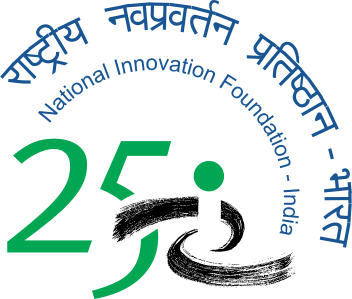Dr. Rajiv Mili

Dr. Rajiv Mili
Designation : Principal Associate
Qualification : Ph.D. (Botany)
Department/Project : SDDM
Location : Guwahati, Assam
Email : rajivmili@nifindia.org
Rajiv Mili has been associated with National Innovation Foundation-India since 2010 in various capacities in the department of Scouting, Documentation, and Database Management (SDDM) and facilitating other core departments’ activities of the organization from time to time. Presently posted at Guwahati Cell for NE Region based at Guwahati, Rajiv acquired wide range of field experiences in scouting and documentation of grassroots innovations and outstanding traditional knowledge practices in agriculture, IPRs protection related activities, natural resource management etc. Further, coordinating activities of staff members posted in different states of North East, overseeing their work, Networking and coordination with partners across the NE- Universities, Science and Technology Councils/ Departments, Education Departments and Higher Education Institutions. Prior to joining NIF, Rajiv was associated with both Gauhati University and GB Pant National Institute of Himalayan Environment in various capacities such as Research Assistant, JRF/SRF etc. between 2005-10 years. He did his masters from Dibrugarh University in Life Sciences (Botany) and Ph.D. (Botany) from RGU, Doimukh, Arunachal Pradesh.
Publications
Mili, R. & Sundriyal, R.C. (2023). ÉPOP (traditional starter culture): a complex composition of plant resources prepared by the Misings of Assam, Northeast India. Journal of Ethnic Foods, 10, 47 (2023). https://doi.org/10.1186/s42779-023-00214-2
Mili, R., Das,A.K., & Sundriyal, R.C. (2023): Traditional Land Use and Fallowing System in Shifting Cultivation Areas of Adis in Arunachal Pradesh, India. International Journal of Innovative Science, Engineering & Technology, 10(6): ISSN (Online) 2348 - 7968.https://ijiset.com/vol10/v10s6/IJISET_V10_I6_12.pdf
Mili, R. & Islam, M. (2022). On the occurrence and distribution of Psammophytes and their local uses: a case study from Dibrugarh district of Assam, North East India. International Journal of Innovative Science, Engineering & Technology, (IJISET), 09(12):2348-7968.https://ijiset.com/vol9/v9s12/IJISET_V9_I12_01.pdf
Maurya, N., Ravikumar, R.K., Mili, R., Prasad, M., Raturi, V. & Kumar, V. (2017). Conceptual Design in Integrating Informal Knowledge System: A Specific Reference to Livestock Science. Ruminant Science, 6(2), 357-360.
Liden,M., Mili, R. & Saikia, B. (2013): New Corydalis (Fumariaceae) from Anjaw, NE India.Annales Botanici Fennici. 50:172-174. https://doi.org/10.5735/085.050.0307
Mili, R., Dollo, M., Samal, P.K, & Arya, S.C. (2010). Ethnomedicinal knowledge on treatment of Pneumonia and Asthma diseases by the Mising tribe of North Eastern India. Journal of Economic and Taxonomic Botany, 34 (3):548-560.
Mili, R., Samal, P.K. & Dollo, M., (2010). Extraction of non-timber forest products from shifting agriculture fallow land by Adi tribe in Siang districts of Arunachal Pradesh, North East India. Journal of Non-Timber Forest Products, 17(1), pp.78. https://doi.org/10.54207/bsmps2000-2010-ADU6D3
Articles
Mili, R. (2014).The Ke'bang- a unique traditional village institution among the Adis and the Misings: a critical outlook. RÉGÍ: RÉGAM, Doley., S. (Ed.) A souvenir on the eve of Ali-A:yé Lígang published by All Guwahati Mising Kébang. Murong Okum, Japorigog, Ghy-5.
Mili, R. (2013). Exploring Himalaya in search of Corydalis: An experience from Anjaw district of Arunachal Pradesh. In: BOR LUIT, Pangging., R. (Ed.) Annual Souvenir, Afala Mising High School, pp:41-48.
Mili, R. (2012). Exploring resources of the great Abotanis through the mighty Siang (in Assamese).In: Doley D. (Ed.). MERU, 5th Mising Youth Festival Souvenir, pp: 38-46.
Samal, P.K., Mili, R., Singh, L.J., S.C. Arya. & Dollo, M. (2008). Shifting Agriculture: issues and options. Arun-Awaz Science Magazine. 1(1): 6-14.
Mili, R. (2007). Bamboo: Prospect for sustainable development in North East India. MORE Expression. 1:11.
Book Chapter
Samal, P.K., Mili, R. & Dollo, M. (2019). Local knowledge in managing upland agriculture by the Adis in Arunachal Pradesh, North East India. In M.C. Behera (ed.), Shifting perspectives in Tribal Studies, (pp. 329-349.) Springer Nature Singapore. DOI:10.1007/978-981-13-8090-7_17
Mili,R., Singh, L.J., Samal, P.K. & Dollo, M. (2012). Traditional institutions supporting sustainable management of natural resources in central Arunachal Pradesh, India. In. R.K. Mandal (Ed.) Management and Policy Issues under International Environmental Economics (pp. 188-202.), ISBN: 978-93-5056-151-5, Discovery Publishing House Pvt. Ltd., New Delhi.
Mili, R., Dollo, M. & Samal. P.K. (2010). Shifting agriculture in North East India: Transition and Contemporary issues. In. Behera, M.C & Basar J.(Eds) Interventions and Tribal Development Challenges before Tribes in India in the Era of Globalisation,( pp. 132-158.) SERIAL PUBLICATIONS, Darya Ganj, New Delhi- 110002 (India)






